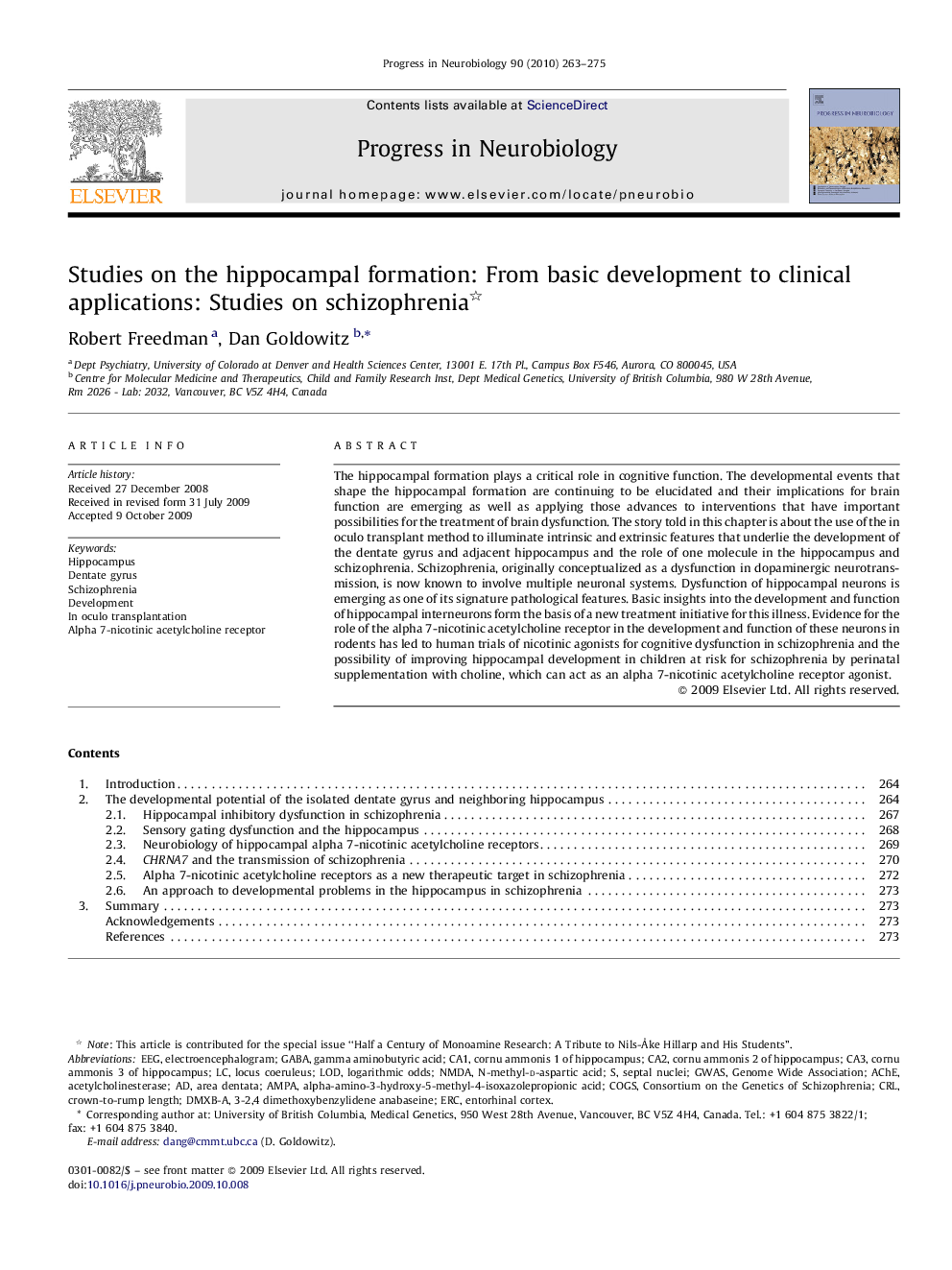| Article ID | Journal | Published Year | Pages | File Type |
|---|---|---|---|---|
| 4353731 | Progress in Neurobiology | 2010 | 13 Pages |
The hippocampal formation plays a critical role in cognitive function. The developmental events that shape the hippocampal formation are continuing to be elucidated and their implications for brain function are emerging as well as applying those advances to interventions that have important possibilities for the treatment of brain dysfunction. The story told in this chapter is about the use of the in oculo transplant method to illuminate intrinsic and extrinsic features that underlie the development of the dentate gyrus and adjacent hippocampus and the role of one molecule in the hippocampus and schizophrenia. Schizophrenia, originally conceptualized as a dysfunction in dopaminergic neurotransmission, is now known to involve multiple neuronal systems. Dysfunction of hippocampal neurons is emerging as one of its signature pathological features. Basic insights into the development and function of hippocampal interneurons form the basis of a new treatment initiative for this illness. Evidence for the role of the alpha 7-nicotinic acetylcholine receptor in the development and function of these neurons in rodents has led to human trials of nicotinic agonists for cognitive dysfunction in schizophrenia and the possibility of improving hippocampal development in children at risk for schizophrenia by perinatal supplementation with choline, which can act as an alpha 7-nicotinic acetylcholine receptor agonist.
